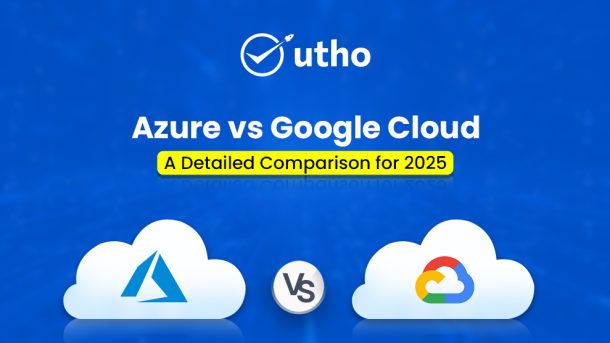
Here’s an in-depth article on “Choosing Between AWS, Azure, and GCP: 2025 Edition” — an excellent fit for Epic Sphere Cloud’s audience, offering valuable insights on the three major cloud platforms in the market today and guiding businesses on making the right choice for their needs.
☁️ Choosing Between AWS, Azure, and GCP: 2025 Edition
As businesses continue to migrate to the cloud, Amazon Web Services (AWS), Microsoft Azure, and Google Cloud Platform (GCP) have become the three titans of cloud computing. These platforms offer a broad range of services, from compute and storage to machine learning, artificial intelligence, and Internet of Things (IoT) capabilities.
Each platform has its strengths, and the right choice depends on factors like your business needs, technical expertise, pricing models, and long-term goals. In 2025, cloud computing continues to evolve, and there’s more competition than ever between AWS, Azure, and GCP.
So, how do you choose between these three cloud giants? Let’s break down the key considerations to help you make the best decision for your business.
🌐 1. Market Share and Ecosystem
When it comes to the cloud market, AWS has traditionally been the leader in terms of market share, but Azure and GCP have made significant strides in recent years.
- AWS: Amazon has dominated the cloud space for over a decade, offering a wide range of services with a massive global infrastructure. It’s the go-to platform for startups, enterprises, and government agencies alike.
- Azure: Microsoft’s cloud offering has seen explosive growth in recent years, especially with hybrid cloud solutions. Its integration with Windows Server, Active Directory, and Office 365 makes it an attractive choice for organizations that are already embedded in the Microsoft ecosystem.
- GCP: While Google’s cloud is a more recent contender, its advanced analytics, AI, and machine learning capabilities are unmatched. GCP also provides the best Kubernetes and container support and offers a highly competitive pricing model.
Which is best for you?
- AWS offers the most mature and extensive ecosystem if you need a broad range of services and global reach.
- Azure is the best choice if your business already relies on Microsoft products and you need a seamless hybrid cloud experience.
- GCP is ideal for data-heavy workloads, machine learning, and analytics, especially if your organization values Google’s open-source philosophy and Kubernetes expertise.
💡 2. Core Strengths: What Each Platform Does Best
Each cloud provider has strengths that make it particularly well-suited for specific use cases. Here’s a closer look at the core competencies of each:
Amazon Web Services (AWS)
- Comprehensive Service Offering: AWS leads in terms of the number of services available, covering everything from compute and storage to AI, IoT, and quantum computing. It’s a one-stop-shop for almost every cloud need.
- Global Reach: AWS has the largest number of data centers worldwide, making it ideal for businesses that require high availability, low latency, and global scalability.
- Strong for Enterprise Solutions: AWS has a track record of being the platform of choice for large-scale, enterprise-level applications, offering features like AWS Lambda, Elastic Kubernetes Service (EKS), and EC2 instances.
Best for: Enterprises, large-scale infrastructure, startups with diverse needs, global scalability.
Microsoft Azure
- Hybrid Cloud Expertise: Azure’s hybrid cloud capabilities are second to none. Its Azure Stack enables businesses to run certain workloads on-premises while leveraging cloud benefits. This makes it particularly appealing for businesses with strict data residency requirements.
- Integration with Microsoft Products: Azure is the best choice if you’re already invested in the Microsoft ecosystem (Windows, Office 365, Dynamics, etc.). Tools like Azure Active Directory, Power BI, and Azure DevOps integrate seamlessly with your existing tools.
- Enterprise-Grade Support: Azure’s strong enterprise support, coupled with compliance certifications, makes it the preferred platform for regulated industries like finance and healthcare.
Best for: Businesses heavily relying on Microsoft products, hybrid cloud solutions, industries with regulatory requirements.
Google Cloud Platform (GCP)
- Machine Learning & AI: Google has always been a leader in AI and machine learning, offering advanced tools like TensorFlow, Google AI, and BigQuery for data analytics. Their AI-powered services are integrated into the GCP ecosystem, making it a strong choice for data science-heavy applications.
- Kubernetes & Containerization: GCP is a leader in containerization, and their Google Kubernetes Engine (GKE) is considered the best Kubernetes platform on the market, designed for modern, container-based applications.
- Open-Source & Developer-Friendly: GCP has an open-source, developer-friendly ethos, offering easy integrations with technologies like Docker, Kubernetes, and TensorFlow.
Best for: Machine learning, data analytics, containers, and organizations looking to leverage open-source technologies.
📊 3. Pricing Models and Cost Efficiency
The pricing structures of AWS, Azure, and GCP are often seen as complex, but each provider offers ways to optimize costs for your organization.
- AWS: AWS offers a pay-as-you-go pricing model, with various options for reserved instances and spot instances for cost savings. AWS also provides detailed cost calculators to help you estimate your spend. However, AWS can be pricier than the others, especially when services scale up.
- Azure: Azure has a similar pay-as-you-go model but often offers discounts for enterprises already using Microsoft products. Azure also provides hybrid and long-term commitment pricing options that can reduce costs over time. It is generally cheaper for Windows-based workloads.
- GCP: GCP is often seen as the most cost-effective option for businesses looking to optimize expenses. With sustained usage discounts and preemptible VM instances, GCP can offer significant cost savings for certain workloads.
Which is best for you?
- AWS can get expensive at scale but provides robust tools for cost management.
- Azure is cost-effective for businesses already using Microsoft software and looking for hybrid cloud solutions.
- GCP offers the most competitive pricing for workloads that are data-driven, such as big data processing and machine learning.
🛠️ 4. Developer Tools and Integration
The developer experience can vary greatly depending on the platform you choose. AWS, Azure, and GCP all offer powerful developer tools, but each has a slightly different approach.
- AWS: Known for its rich set of developer tools (e.g., AWS CodeBuild, AWS CodePipeline, Lambda, and CloudFormation), AWS is excellent for automation and CI/CD pipelines. Its well-documented SDKs make it developer-friendly, although the large number of services can be overwhelming for new users.
- Azure: Azure’s integration with Visual Studio and GitHub makes it an attractive choice for developers, particularly those in the .NET ecosystem. Azure DevOps provides a robust set of tools for continuous integration, development, and monitoring.
- GCP: GCP is beloved by developers for its Kubernetes support and integration with modern development practices. Its Cloud Functions, Cloud Run, and App Engine offer lightweight, serverless compute options that appeal to developers building modern applications.
Which is best for you?
- AWS is the go-to platform for teams that need flexibility, scalability, and a robust developer toolset.
- Azure is perfect for teams already familiar with Microsoft tools and looking for integrated development solutions.
- GCP is ideal for developers focusing on containers, serverless architecture, and data-centric applications.
⚖️ 5. Support and Compliance
Each cloud provider offers a broad range of compliance certifications (HIPAA, GDPR, PCI-DSS, etc.), but their focus varies based on industry and geographic region.
- AWS: AWS offers extensive global coverage and industry-specific compliance features, making it a good choice for regulated industries like finance, healthcare, and government.
- Azure: Azure is also well-suited for industries with strict compliance requirements, and it’s a popular choice in sectors like healthcare, finance, and education, especially in regions with specific data sovereignty laws.
- GCP: While GCP has robust compliance support, it’s often seen as the more developer-focused platform, with slightly fewer compliance options than AWS and Azure. However, GCP excels in AI-driven compliance for industries dealing with massive amounts of data.
Which is best for you?
- AWS and Azure are both well-suited for heavily regulated industries.
- GCP is a strong contender if your business is focused on AI, machine learning, and big data.
🏁 Final Thoughts: Choosing the Right Cloud Provider for 2025
In 2025, AWS, Azure, and GCP each offer distinct advantages, and the right choice depends on your organization’s specific needs:
- AWS is perfect for businesses needing a vast range of services and global scalability.
- Azure excels in hybrid cloud solutions and seamless integration with Microsoft products.
- GCP stands out in machine learning, big data, and open-source tools, ideal for modern, containerized applications.
Ultimately, it’s about aligning your company’s goals with the strengths of the cloud provider that best fits your technical requirements, budget, and long-term growth strategy.
☁️ Ready to embark on your cloud journey?





